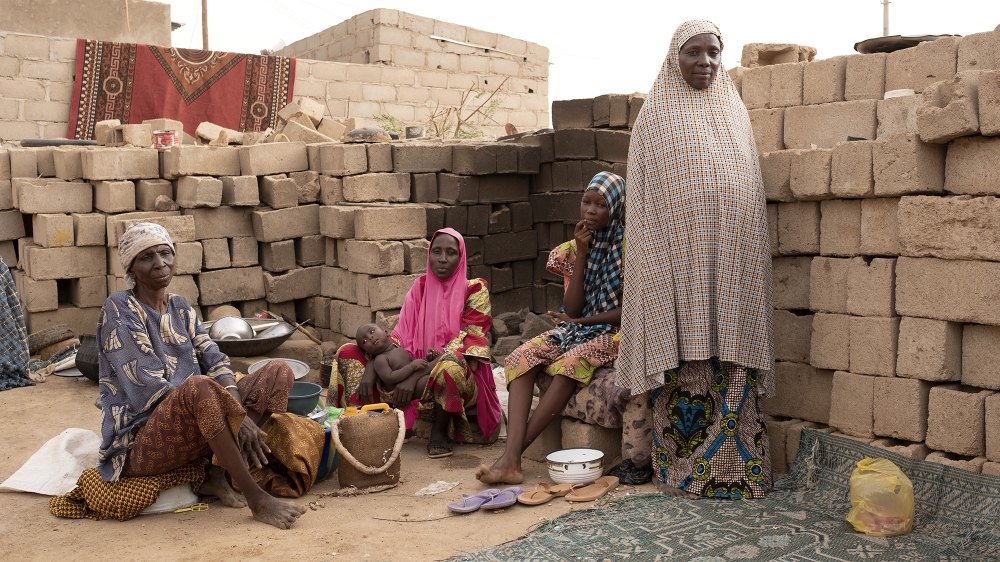After crackdown, what do people employed in migration market do?
Companies, agencies, institutions, etc
Niger
EU
Agadez
Alkassoum
Sebha
the International Organization for Migration (IOM
the European Union
Emergency Trust Fund of Africa
the High Authority
the Consolidation of Peace
The High Authority
Al Jazeera
the United Nations
Al Jazeera News
Al Jazeera Media Network
People
Habi Amaloze
Fatoumata Adiguini
Rhissa Feltou
Nigerien
Paiera
Hamaloze
Stalin
Groups
Libyan
African
Italian
Niger
Tuareg
Hausa
European
French
Spanish
West African
Russian-Saudi
Soviet
Physical locations
Mahaman Alkassoum
Sahara
Himalayas
Places
No matching tags
Locations
Niger
Agadez
Algeria
Libya
Chad
Feltou
Brussels
Saudi Arabia
Events
No matching tags

Summary
In early 2018, the leader of the group, a renowned smuggler, disappeared with some of the funds. Alkassoum, at the time the association's secretary, got discouraged. That was the moment when their female colleagues showed up.Most of them were wives or sisters of smugglers, who were cooking for the migrants inside ghettos and, all of a sudden, had also seen their source of income disappear.Resorting to an old experience as a youth leader, Alkassoum decided to help them launch new businesses, through lessons on community participation and bookkeeping.As of mid-2018, more than 70 women had joined. "At first we met to share our common suffering after losing our jobs, but soon we realised we needed to do more," says Fatoumata Adiguini at the end of the class.They decided to launch small businesses, dividing themselves into subgroups, each one developing a specific idea. Habi Amaloze, a thin Tuareg woman, heads one of the groups: 17 women that called themselves "banda badantchi" - meaning "no difference" in Hausa - to share their common situation. The banda badantchi started with the cheapest possible activity, shelling and toasting peanuts to sell on the streets. Other groups collected small sums to buy a sheep, chicks or a sewing machine. "We started with what we had, which was almost nothing, but we dream to be able one day to open up a restaurant or a small farming activity," explains Amaloze. While most men left Agadez to find opportunities elsewhere, the women never stopped meeting and built relations of trust. Besides raising their children, they have another motivation: working with migrants has freed them from marital control, something they are not willing or ready to lose.According to Rhissa Feltou, the mayor of Agadez, the crackdown on northbound migration responded to European requests more than to local needs.Since 2015, the European Union earmarked 230 million euros ($261.7m) from its Emergency Trust Fund of Africa for projects in Niger, making it the main beneficiary of a fund created to "address the root causes of migration". Among the projects, the creation of a police investigative unit, where French and Spanish policemen helped their Nigerien counterparts to track and arrest smugglers.Another project, known under its acronym Paiera, aimed at relieving the effect of the migration crackdown in Agadez, included a compensation scheme for smugglers who left their old job.
As said here by Giacomo Zandonini